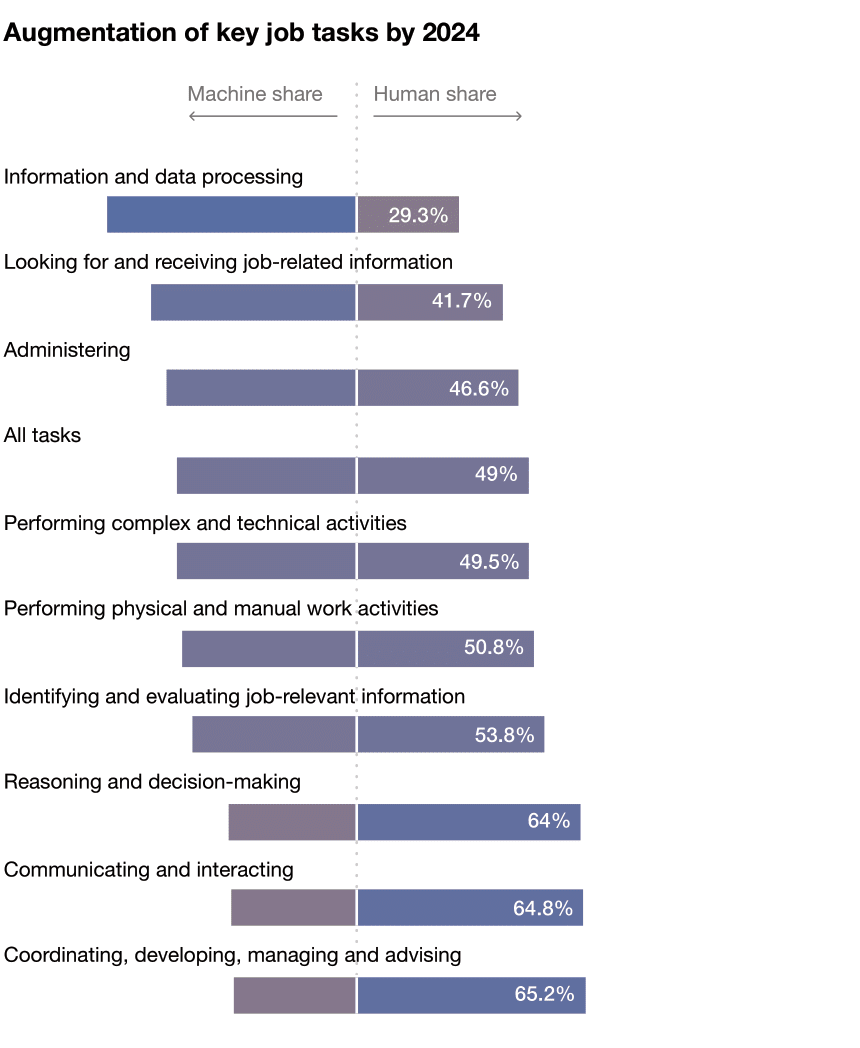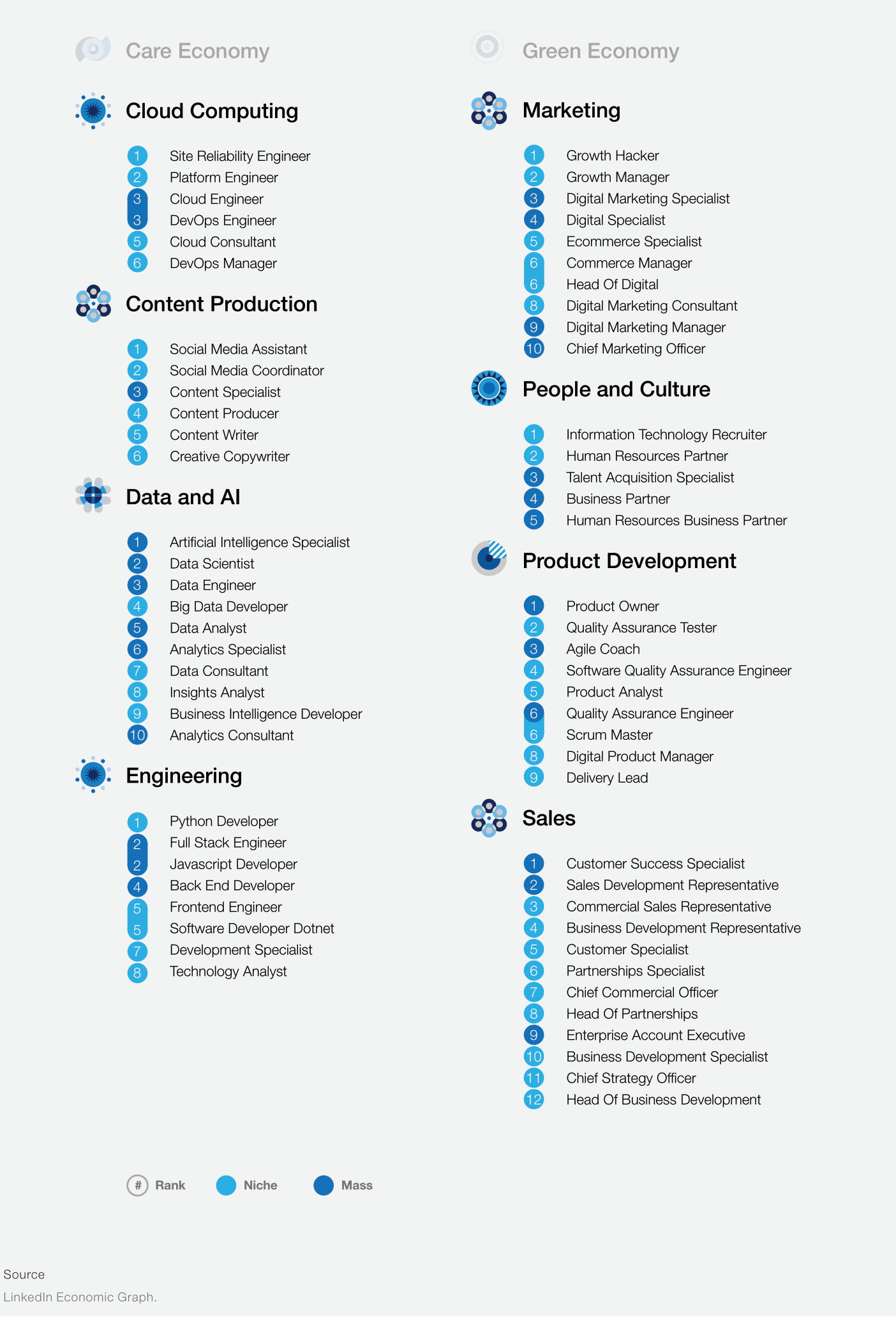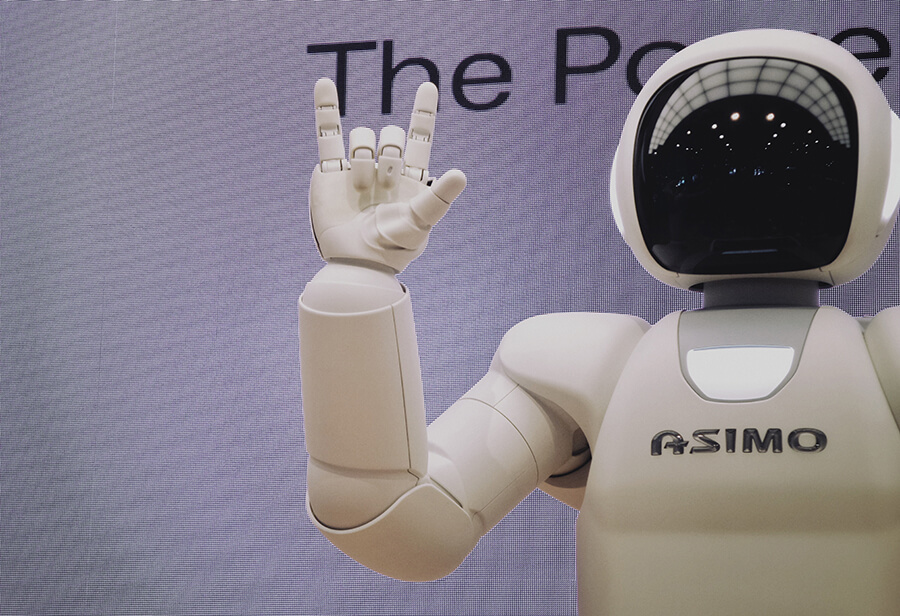By 2025, 97 million new jobs will emerge across 15 industries and 26 countries, and 85 million others will be displaced by a shift in the division of labor between humans and machines, according to The Future of Jobs Report 2020 by the World Economic Forum.
In total, the report’s data set contains around 290 responses by global companies, collectively representing more than 7.7 million employees worldwide.
Jobs with growing demand
A growing trend for automation and artificial intelligence (AI) will affect many occupations related to routine work that could be automated. For example, according to the World Economic Forum, decreasing demand is expected for data entry clerks, accountants, financial analysts, human resources specialists, and some others.
Meanwhile, the leading positions in growing demand since the 2018 survey remain roles such as Data Analysts and Scientists, AI and Machine Learning Specialists, Robotics Engineers, Software and Application developers as well as Digital Transformation Specialists.
In addition, occupations such as Process Automation Specialists, Information Security Analysts, and Internet of Things Specialists are newly emerging among roles that are seeing increasing demand from employers.
Top 10 digital communications and information technology jobs in 2025
Source: World Economic Forum
1. AI and Machine Learning Specialists
2. Data Analysts and Scientists
3. Big Data Specialists
4. Information Security Analysts
5. Process Automation Specialists
6. Digital Marketing and Strategy Specialists
7. Software and Applications Developers
8. Digital Transformation Specialists
9. FinTech Engineers
10. Architects and Surveyors
Other growing jobs are:
- Business Development Professionals
- Internet of Things Specialists
- Project Managers
- Business Services and Administration Managers
- Database and Network Professionals
- Robotics Engineers
- Strategic Advisors
- Management and Organization Analysts
- Mechanics and Machinery Repairers
- Organizational Development Specialists
- Risk Management Specialists
There is a distinct division of labor between humans and machines, though.
Machines and algorithms will be primarily focused on the tasks of information and data processing and retrieval, administrative tasks, and some aspects of traditional manual labor.
The tasks where humans will still be required include advising, communicating, decision-making, interacting, managing, and reasoning.

Source: World Economic Forum
Data and AI jobs of tomorrow
As we can see from the top 10 growing tech jobs ranking, AI and data-driven roles are the occupations that will be most in demand by 2025.
Here are the top 10 roles within the AI and data subsector, according to LinkedIn Economic Graph:
1. Artificial Intelligence Specialist
2. Data Scientist
3. Data Engineer
4. Big Data Developer
5. Data Analyst
6. Analytics Specialist
7. Data Consultant
8. Insights Analyst
9. Business Intelligence Developer
10. Analytics Consultant
However sought-after these roles might be, the skills required to master these professions are not particularly time-consuming. According to Coursera, an online education platform, it takes no more than 3 months on average to master data-specific skills: 86 days for Machine Learning, 84 for Data Management, 72 days for Statistical Programming, and only 34 days for Business Analysis.
Top 10 skills by required level of mastery and average days to master skill
Source: Coursera
1. Statistical Programming: 72 days
2. Communication: 80 days
3. Leadership and Management: 39 days
4. Data Management: 84 days
5. Marketing: 43 days
6. Finance: 67 days
7. Sales: 13 days
8. Computer Programming: 76 days
9. Business Analysis: 34 days
10. Machine Learning: 86 days
Additionally, LinkedIn defined other growing jobs within each professional cluster:

Read also:
→ Top tech skills and IT hiring trends 2020
→ Top 10 trending programming languages 2020
→ Top 35 programming languages and frameworks sought after by employers in the US
